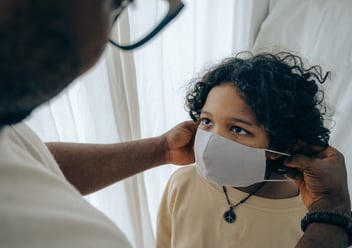Healthcare workers continue to be on the frontlines of ensuring that medical care needs are met during this Covid-19 crisis. For many, this means a combination of longer work hours, day after day, with the added stressor of potential workplace infection exposure. It has never been more important to practice self-care, even as you continue caring for others.
A commitment to caring for yourself is actually an ethical and professional responsibility, since it will allow you to continue in your healthcare duties. The CDC notes the most common signs of stress-related distress:
- Feelings of numbness, disbelief, anxiety, or fear
- Changes in appetite, energy, and activity levels
- Difficulty concentrating
- Difficulty sleeping or nightmares and upsetting thoughts and images
- Physical reactions, such as headaches, body pains, stomach problems, and skin rashes
- Worsening of chronic health problems
- Anger or short-temper
- Increased use of alcohol, tobacco, or other drugs
The best self-care strategies are the ones that you will actually do, and not unrealistic goals that you can’t meet and then in turn will feel guilty about. In addition, not every stress management technique will be realistic for your current life, in terms of work demands, remote jobs, and/or changing family needs during this time.
8 Stress Management Suggestions
- Get enough sleep
- Take regular breaks
- Notice the good things in your life
- Exercise, even if it’s just a 20 minute walk
- Eat nutritiously
- Connect with friends and loved ones
- Take some time to be alone
- Talk to someone about any rising stress or signs of depression
Caring for yourself while you are also responsible for caring for others is not a sign of selfishness. You cannot continue in a frontline healthcare capacity if you are not meeting your own needs.
Remember, you can count on BioPlus in these tough times, and in the better days ahead.
Related Posts
Celebrating Nurses
Here at BioPlus Specialty Pharmacy it’s hard to overstate how much we value nurses, but now during...
A Hidden Second Crisis
While the Covid-19 pandemic, understandably, garners the full attention of the world, it’s...
OneWorld Health: The Gift of Healthcare
Giving Tuesday comes around each year on the Tuesday after Thanksgiving. It serves as an onramp to...





